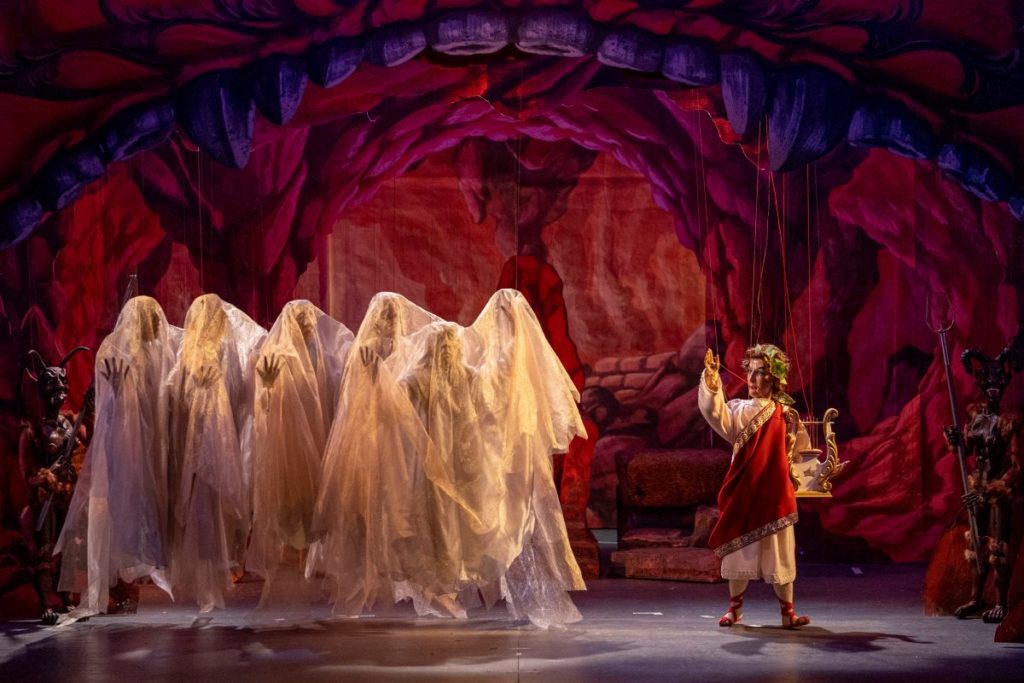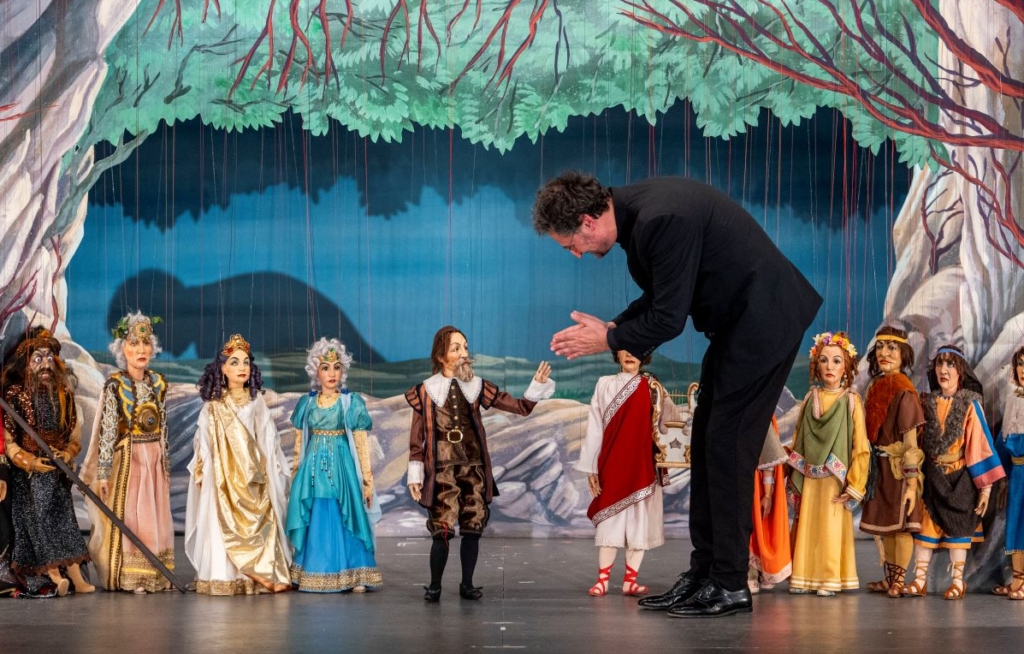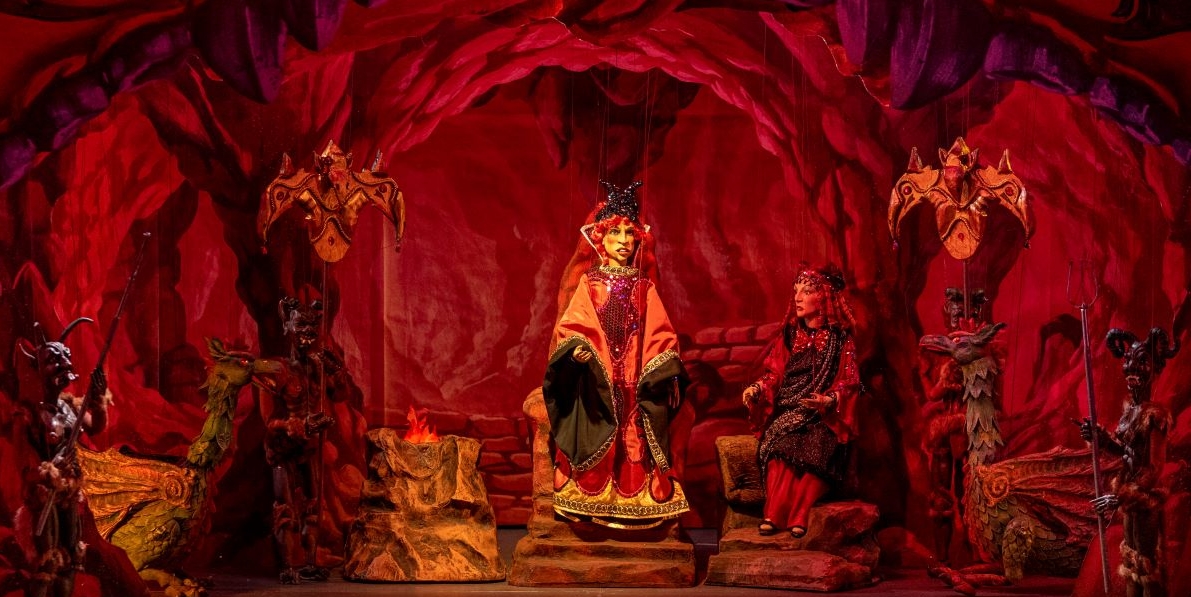This sole Monaco performance was unique as it was performed entirely by puppets from the renowned Carlo Colla puppet theatre.
Monte Carlo opera is situated inside the Casino. If you turn left, you can lose your money in the casino, and if you go straight ahead, you can lose your mind to wonderful music in the stunning setting of the Salle Garnier, a mini version of Paris opera. The small opera house has great acoustics, and the dressing rooms look over the Mediterranean.
Monteverdi’s Orfeo was one of the first operas ever written; Opera was only 10 years old. Staged performances were usual, but it was thought ridiculous for people to sing on stage. However, if they were Gods, that was acceptable, hence all operas at the time were deified and thus there were many versions of Orfeo. Orfeo was a half god, with a talent for music. Verismo was 275 years later. Orfeo, originally sung by a castrato, often a mezzo and tonight by a baritone.
The stage had a small stage on it, and puppet Monteverdi perfects his score as the curtain opens. The next pastoral scene describes Orfeo’s passionate love for Eurydice, their happiness at just being married; sheep appear, birds flutter around. The puppets move very convincingly. After the terrible news of Eurydice’s death from a snake bite, everything changes. Orfeo mopes about miserably until Goddess Hope persuades Orfeo to try to get Euridice back from Hades.
The scene changes to the shore of Hades; Orfeo tries his best to persuade the boatman (emerging in smoke) to row him across. He plays his lute, which usually does the trick, but not this time. Instead, it sends the boatman to sleep, so he steals off to Hades. The puppeteer playing the lute is very talented, puppet Orfeo touched every string for every note perfectly.
Dead spirits sing and dance about suspended like ballerinas.

Another scene change to Hades where birds disappear and bats flutter around. The red set is stunning. Hades is persuaded by his wife, for the first time ever, to release someone back to life. Hades allows Orfeo retrieve Eurydice, (now another dead suspended spirit) provided that he leads her up to earth, and doesn’t look back to look at her on the way up, whatever happens, or he loses her forever. Orfeo has doubts as to whether he has been tricked, and if she really is there, he looks back and loses her forever.
Zeus descends in gold chariot from the sky, telling Orfeo that as he is so miserable, he can’t go on like that, so he might as well be reunited with Eurydice as a star in the sky. Orfeo thinks is a good idea, and goes up in the chariot to be a star, so he and Eurydice can see each other forever as stars. Whereupon lots of little puppet stars appear.
As a singer myself, it cannot be easy to sing behind a stage in perfect time with the orchestra and the puppets, but it worked. A few of the singers, in particular were very good – Baritone Dolcini’s Orfeo, and mezzo Mingardo’s Messagera/Speranza.
At the end, the front of the small stage comes up, revealing the puppeteers. A puppet character walks onto the stage to take a bow at the same time as the singer who joins the puppet, takes its hand and they bow together. Some singers singing two roles have two puppets. Capuano takes the final bow with puppet Monteverdi to tumultuous applause. It was touching.

This was the final performance of the first season with the incredible Cecilia Bartoli at the helm, and it has been a huge success. Her intelligence, profound understanding of the profession and singers (she has strong ties with Zürich and Salzburg), enable her to plan excellent programmes and terrific replacements to major roles at a few days’ notice.
It was a magical, and very different night at the opera.

